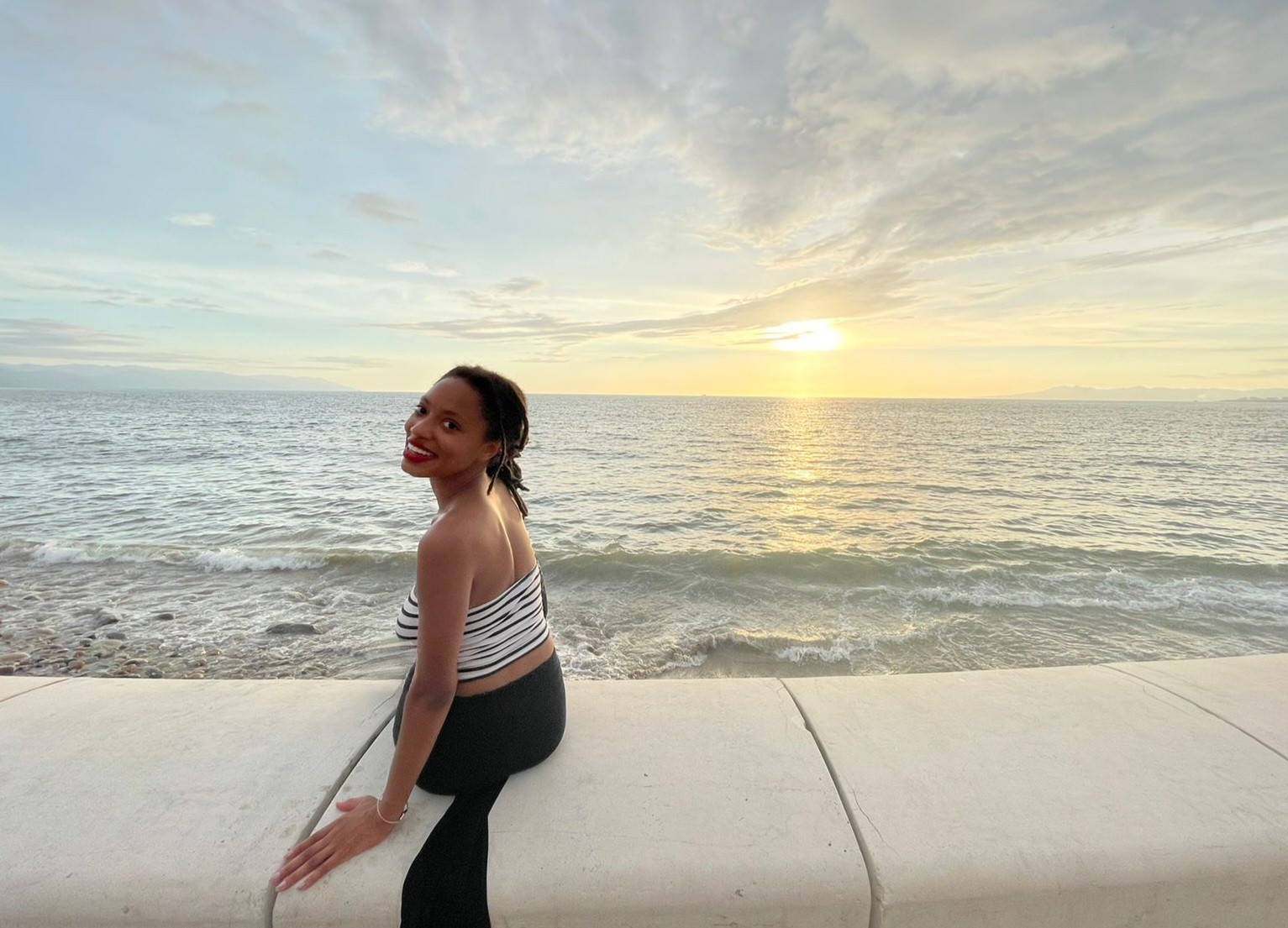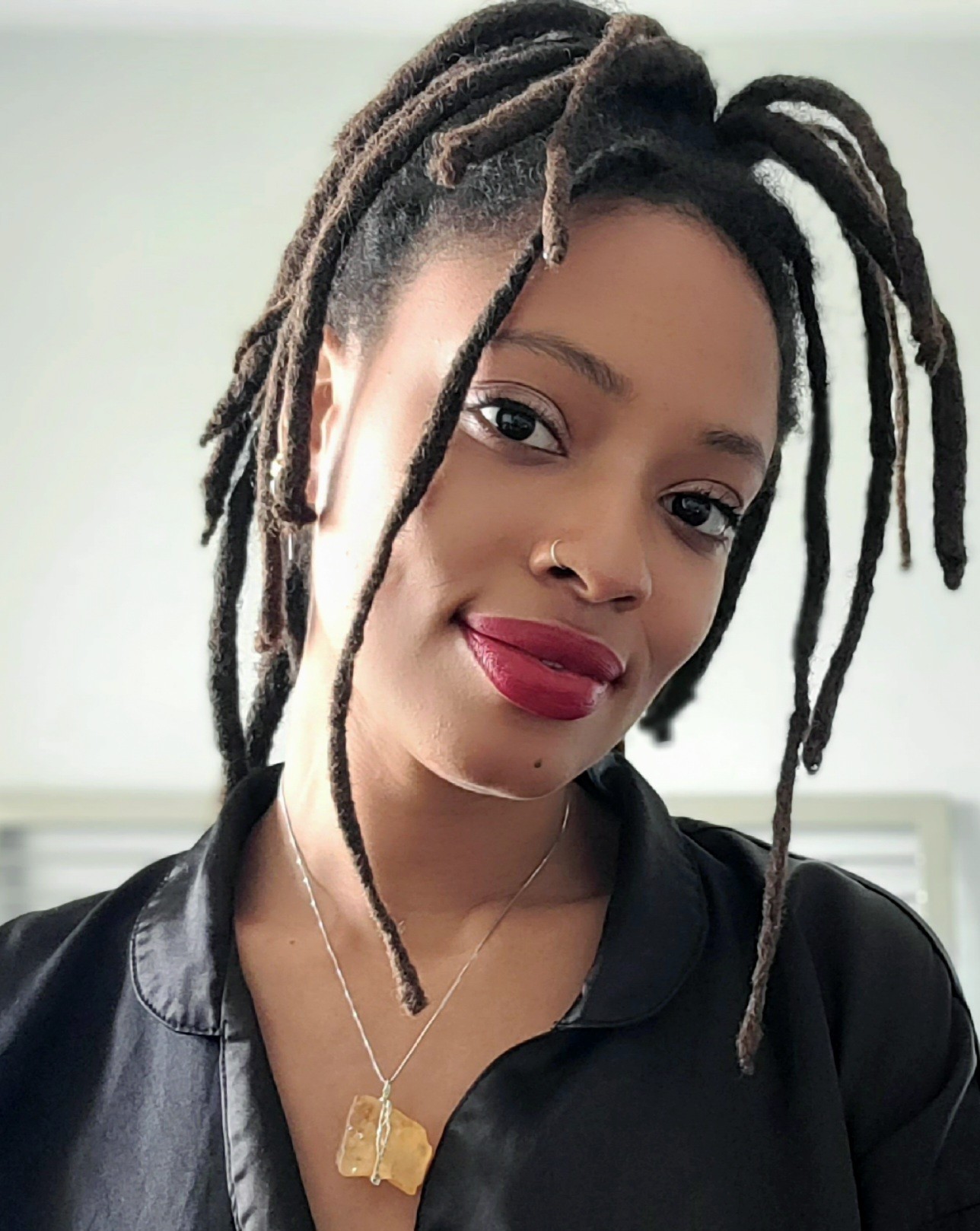We caught up with the brilliant and insightful Odessa Esco a few weeks ago and have shared our conversation below.
Odessa, looking forward to hearing all of your stories today. Let’s start with the story of your mission. What should we know?
When you have experiences and identity outside of the “ruling” class you being to feel like an outsider. You stop sharing earnestly as you are repeatedly misunderstood, undervalued, or dismissed. Eventually you may stop communicating all together.
There’s been times in my life where I’ve hopelessly thought:
Why is my voice so quiet? Why isn’t my voice valuable? Why isn’t my voice respected?
After being lucky enough to see some of the world I answered these questions:
Why is my voice so quiet? = I’m a woman in a man’s world.
Why isn’t my voice valuable? = I am a black person living in white supremacy.
Why isn’t my voice respected? = I fight for freedom without exchanging individuality.
You see, I was really experiencing the simple and sour reality of humanity, learning every way my very identity is stacked against me in this bustling economy of communication. We are what our words are worth but society decides who is worth anything. Engaging with people of all ages, ethnicities, and nationalities practicing English for the sake of accessibility, has taught me how being born speaking English, no matter its colonial roots, is currently a blessing. Traveling has exposed the bias native English speakers have in life status around the world. Native English speakers get better job opportunities, travel visas, media & entertainment options, scholarly resources and knowledge banks, and that’s just to name a few things. I’ve watched Natives perceive intelligence and capability incorrectly when speaking with non natives, and lack basic communication skills to speak universally with secondary speakers. These black holes in human communication between native English speakers and the rapidly growing number of secondary speakers glow like stars to me. As a Black female human rights activist, it’s easy to relate to people who want to be heard when they communicate. It breaks my heart that a voice is only as good as the mouth it comes out of and not the soul it comes from. My mission as Odessa Esco the brand and person is to create genuine community in English communication across native and non-native speakers through intentional, responsible, authentic expression. I want to create a space through content, resources and of course lifestyle that allows native and non- natives to learn how best to communicate in English together, especially on racial and political matters. Natives need to be more aware of how to listen and speak to non natives as they attempt to engage in serious topics in anyone’s mother tongue. Community is the seed and soil of all communication as it is people who come together to create language of all kinds (body, sign, verbal etc.) to interact with one another. Now more than ever it is important that people not only have their own voice but help others find the correct words and understandings as we take on issues as a global community.
Before you can feel like you don’t matter you have to believe that your voice doesn’t. It is my goal to use my mission to make sure there is space for every voice; no matter who it comes from, no matter the English level.






Odessa, love having you share your insights with us. Before we ask you more questions, maybe you can take a moment to introduce yourself to our readers who might have missed our earlier conversations?
I was another business grad pumped through a white washed education system of greed. I wanted to leave the society I knew, it made me sick to my stomach. Naturally as a young lost native English speaker I had the opportunity to take my wanderlust out on Asia and moved to Japan to teach English for a year. I really went for the anime, nature and Japanese culture sock (which I got) but I fell in love with the synergy of wanting to understand someone and their desire/right to be understood. I gained the patience and joy in the foundations of teaching in Japan. When the pandemic hit I moved online and expanded my client base to the entire world and thats when I began to find my calling. Students were fascinated by my existence as a black educated woman from America with Caribbean heritage. I found myself having more detailed and complex conversations with students of all levels. These discussions were about my hair, skin, “talking black” , and my experience traveling solo. I slowly realized the students I had more cultural and political conversations with no matter how uncomfortable at times were advancing faster than my regular topic students. The level of understanding and the mental connections we were able to create were that of community. My students grew to love AND respect black people, women, veganism and so much more through me and in turn I have gathered a modest libraries worth of global history and life perspectives. I have a profound respect for English learners all over the world and friends all over. They really start a step behind in a way and I don’t say that lightly as a black woman from America. English is a barrier in so many realms and I had no idea the best way to help my students universally. Thinking and listening to learners I gained the insight that they aren’t the only ones who need to be learning. Communication is a conversation between two parties, they both have to put equal effort into speaking as they do understanding, aka listening. Hearing stories about English interactions from my students its evident that native English speakers need education and resources to better engage with non native speakers for work, safety and human interest. Having the experience of communicating as an outsider in my white English speaking community and then the varied experiences of being an outsider as a foreigner in different countries in business, education, and social settings has given me the insight to identify insider and outsider communication barriers and habits. Learning when to structure your sentence like a question to give a person the chance to confirm the information being spoken about instead of saying “ do you understand?” can make a world of a difference to a nervous non native speaker. Little things like this can help all non natives and natives communicate better and create community in English.
Any advice for growing your clientele? What’s been most effective for you?
I always try to explore genuine interests and passions within my mission to create English community between native and non-native speakers. I myself am just starting to find my social footing as a brand but I have already noticed how people respond to honest attempts of inclusion and assistance. I explore different mediums and styles of communication; casual vs formal, instructive vs expressive, google doc, tiktok etc. but my goal is always to provide easily accessible enjoyable English communication. I gain new followers and subscribers whenever I post with this in mind so being consistent is what I focus my motivations on. This creates organic growth which is slow but a necessary ingredient in the type of lasting community I am looking to create.





We often hear about learning lessons – but just as important is unlearning lessons. Have you ever had to unlearn a lesson?
When I first entered the English communication field as an instructor I noticed a “buyer & seller” relationship between teachers and students. I thought of the concept of “perfect English” (White western accent and perfect grammar) as my product and took on the role of ‘seller’. This was the vibe of the industry and it’s not too surprising when we think about why we all just happen to be speaking English all over the world. Over time I became disheartened by the amount of third party websites and educational institutions taking advantage and even praying on the global need to communicate in English. Praying on both learners and those they want to be doing the teaching. This mentality creates unnecessary pressures for students and false authority in native speakers. I had to unlearn the idea that me and the people practicing English communication were in a transactional relationship of money and knowledge where I have all the knowledge and they should pay me for it. Instead what I have experienced is a community of intelligent people looking to connect to more people. Most English learners are just learners period. Besides work, school, and immigration, most students simply want access to the information and treatment English speakers get. They don’t care about perfect grammar or test scores that these businesses and websites tell them they “need”. They want access to the global stage of communication. They wanna share their daily happenings and talk about random stuff, and they want to be able to understand others in return. They are not looking to buy a language and no one can sell that so, the truth is I am not a seller. People don’t need another person to learn English, there are books, YouTube and chat-GPT for that. People do however want to speak to strong communicators and I just happen to speak English. They want to express and learn as I listen and model their desired communication style. There is a monetary aspect to my services but I work hard not to let that dilute or confuse what communicating is about. Human connection. We are in community with one another through English. Not a linear transaction. I remind myself often how lucky I am to have access to so many lives and opinions that give me invaluable insight and world perspective. It is important to remember this especially with the entitlement money puts in our heads. People don’t need me or English at all. We are not sellers and buyers but people creating community in English. Everyone’s English will be a little different as we all have a unique voice. The idea of “perfect English” as a sellable thing from the right authority (aka native English speakers, specifically white, male and western) should be drop-kicked back to colonial times. I work hard to provide as much free material and information as I can because English should be free (for so many reasons) and to turn around and allow a “buyer & seller” market is honestly a form of continued systemic abuse.
Contact Info:
- Instagram: odessa_esco
- Youtube: https://www.youtube.com/channel/UCam7M5KXG4VfGwI6hgZKCgA
Image Credits
Matthew Mills


